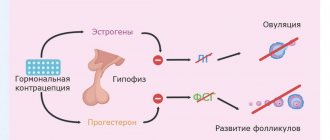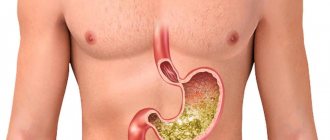Causes and types of food poisoning
In general, there are 2 main causes of food poisoning:
- The body's reaction to foods that differ from the daily diet2.
- pathogenic flora (bacteria, fungi), viruses and toxins that enter the body mainly with contaminated food.
Every corner of the world has its own infectious agents, and they are ready to instantly attack the human gastrointestinal tract, if you just gape.
During the hot season, the chance of getting poisoned increases many times over, because food is stored less and bacteria multiply much faster. Food poisoning is especially common when traveling, so there is a separate concept - “traveler's diarrhea.” Going south, to Asia, the Middle East, Africa, South America or hot islands, we endure a sharp change in climate zone, try unusual national cuisine and drink local water. All this, combined with bacteria and viruses new to our body, can cause food poisoning.
In the US, it has been estimated that out of 1,000 people who become ill after traveling, 1/3 always suffer from diarrhea and food poisoning. E. coli is becoming the most common cause of severe diarrhea abroad1.
A child's body is even more vulnerable. For a fragile body, the cause of poisoning can be anything, especially when traveling: unwashed hands, playing in the sand, unusual sweets or fruits. An accidental sip of water from a pool or sea can also affect a child's intestinal health.
What to do to avoid getting sick
Frequent and thorough hand washing with soap is the prevention of any viral and bacterial infections.
- You need to teach your child to do this from an early age: after going outside and going to the toilet, before meals, and just several times a day.
- Parents should wash their hands themselves before touching or feeding the baby.
- It is important to wash vegetables and fruits before eating, observe temperature conditions when preparing food, and drink boiled or bottled water.
The largest amount of virus is excreted in the stool in the first 5 days of illness, so during this period you need to wash your hands more often and wet clean your home.
Signs of food poisoning and possible complications
Despite the fact that food poisoning occurs due to various reasons, its manifestations at first are always the same, and the symptoms are similar.
The main feature of any poisoning is the speed with which it occurs. Everything happens very rapidly and quickly - within a few hours or in the next 24 hours the body signals a problem1.
The human body is a self-regulating system and therefore tries to get rid of pathogens in any way. This may include general malaise, diarrhea and abdominal pain3:
- Abdominal pain varies in nature, but is often sharp and quite severe. The intestines react to most toxins and bacteria with a spasm.
- Intoxication of the body - headache, weakness, muscle pain and joint aches.
- Diarrhea is also a striking symptom of food poisoning, manifesting itself in almost every case.
In case of severe poisoning, other symptoms may be added - nausea, vomiting and fever3:
- Nausea is one of the clearest examples of how the body tries to resist a food infection and eliminate bacteria. Nausea may be accompanied by belching and a feeling of heaviness in the stomach.
- Vomiting is another of the body’s defense mechanisms against infectious agents. In case of severe and progressive poisoning, vomiting must be controlled, otherwise severe dehydration may occur.
- Dehydration syndrome. Conditions for such a symptom would be active vomiting or diarrhea. The human body loses a huge amount of fluid in a short period of time, which can be expressed by severe thirst and dizziness, up to loss of consciousness. Dehydration is especially dangerous in children, who, with severe poisoning, instantly lose all water reserves in the body.
- Increased body temperature. The body reacts to any attack in a similar way. Food poisoning is no exception, the body tries to fight, which is manifested by an increase in temperature from 37.5º C to 40.0º C - it all depends on the specific type of virus or bacteria.
What happens when a virus enters the body
With food or saliva - if a child licks his dirty hands - rotavirus enters the mouth, then into the stomach and intestines. There it penetrates the cells of the superficial layer lining the intestines from the inside and damages them. Unlike bacteria, viruses do not lead to significant inflammation of cells; they disrupt the functioning of the body's enzyme systems to a greater extent.
Carbohydrates stop being broken down and accumulate in the intestines - the balance of fluid, potassium and sodium in the body is disrupted. A lot of water, electrolytes, organic acids and carbon dioxide collect in the intestine, which normally should not be there. Because of them, vomiting and diarrhea begin and gas formation increases. At the age of up to 5 years, intestinal cells are not yet mature enough - rotavirus affects up to 2/3 of them, so children get sick more often and more severely than adults.
Most often, the first symptom is vomiting. It occurs simultaneously with or precedes diarrhea and usually lasts 1-2 days. The stool is usually watery, foamy, yellow in color with a small amount of mucus. In infants it can occur up to 20 times a day. The duration of diarrhea is on average 3-7 days, but there are cases of up to two weeks - usually in children under one year old. Sometimes the infection begins with a fever of up to 38-39 ° C, symptoms of ARVI - cough, runny nose, sore throat. Children can also refuse to eat and literally collapse.
Treatment of food poisoning
First of all, to restore the body, you need dietary nutrition, which will help restore normal functioning of the gastrointestinal tract (GIT).
When resuming nutrition after poisoning, general recommendations must be followed3:
- You need to eat often and in small portions.
- Fried, stewed, spicy, salty and fatty foods are strictly prohibited.
- Alcohol and carbonated sweet drinks should be forgotten during treatment and further recovery.
- It is important to maintain the serving temperature of the food - it should remain neutral - neither cold nor hot.
- The predominant cooking method is boiling and steaming.
- Dishes should be light, mostly lean and familiar to the body.
A home or traveler's first aid kit should always include anti-poisoning medications.
The most popular products3,4:
- Adsorbent preparations or sorbents. No first aid kit should be without such a product. The task of the sorbent is to absorb the toxin and its further removal from the body.
- Drugs to improve digestion. They help the body fully absorb food and will be especially relevant after defeating poisoning.
- Antispasmodics or painkillers. Spasms and pain in the stomach or intestines can also be the body’s reaction to an external “attack”. The task of such medications is to relax the internal muscles and relieve spasms, as a result of which the pain goes away.
When faced with food poisoning, it is first of all important to cope with the acute period of the problem, but it is equally important to think about the period of rehabilitation of the digestive system, because the inflammatory process disrupts its normal functioning. One of the consequences of such a disorder may be a lack of digestive enzymes, which are responsible for the breakdown and absorption of food in the body. As a result, the body experiences a deficiency of nutrients, and a person, even after recovery, may still experience unpleasant symptoms for some time - discomfort in the abdomen, heaviness after eating, periodic bowel movements, etc.
Pancreatin enzyme preparations may be useful to maintain digestion after poisoning5. They are called enzymatic because they contain digestive enzymes identical to those produced by the body and are included in the standard treatment of foodborne infections6.
Digestive enzymes are a special type of compound designed to break down carbohydrates, proteins and fats for subsequent absorption in the body.
Vaccination against rotavirus
There are two vaccines - the Belgian Rotarix and the Russian RotaTek. Only RotaTek is registered in the Russian Federation. It contains the 5 most common strains. Vaccination against rotavirus infection is not included in the national vaccination schedule, but it can be done at the request of parents. RotaTek has strict age restrictions and intervals between revaccinations - be sure to consult your pediatrician.
“The effectiveness and safety of vaccines against rotavirus infection, subject to age limits, has been confirmed in many studies,” says Elena Kolganova, a pediatrician at the Fantasy children’s clinic. — After receiving the third dose of the vaccine, the number of hospitalizations decreased by 100%, and visits to the clinic decreased by 96%. Rotavirus, unlike influenza, rarely mutates, and therefore vaccination does not need to be carried out every year - immunity lasts up to three years.”
Signs of a serious illness in your baby
The sudden appearance, literally an hour ago, of a completely healthy baby, diarrhea and vomiting is already enough to seek the help of a doctor. If the child’s condition is already critical, the best solution would be to call an ambulance at home. These 2 symptoms can most likely indicate the presence of a serious infection in the child’s body that needs to be eradicated; the sooner, the easier it will be. In the early stages, the doctor will be able to diagnose the cause of the symptoms much faster and begin taking measures to eliminate it. A doctor’s help with these symptoms will be needed in the following cases:
- If the baby is less than 3 years old (this measure is extremely necessary if he has not reached six months of age)
- When the child’s body temperature reaches +38 degrees and above
- If there is blood in your baby's stool
- In case of regular, profuse diarrhea that does not stop throughout the day
- Vomiting continues more than several times
- Deterioration of appetite or its complete absence, refusal to accept the body with subsequent vomiting of everything, no matter what he drinks or eats
- The child is crying, and the lips and eyes are dry, at the same time the eyes are sunken, and the state has become lethargic, drowsiness may occur
The fact is that symptoms such as diarrhea in a child can occur even when he is completely healthy. It’s just that children under 3 years old eat mostly soft foods, so the stool can also be quite liquid. But it is important to pay attention to whether there is mucus, blood or other suspicious discharge.
How to help the body recover
“Previously, there was an opinion that if you have a rotavirus infection, you should not consume dairy products,” says Elena Kolganova. — Now scientists have revised their opinion on this matter: if a child is breastfed or formula-fed, then nothing needs to be changed. For adult children, it is advisable to remove fresh fruits and vegetables, as they enhance peristalsis and fermentation processes in the intestines.”
If a child has a temperature above 38.5 ºС, you can give him antipyretics, and in case of severe pain - antispasmodics. You should not give painkillers - this will mask the symptoms and it will be difficult for the doctor to make a diagnosis. You should not rinse your child’s stomach - this will increase vomiting and lead to extreme dehydration - loss of consciousness, convulsions.
“Treatment of uncomplicated rotavirus infection is symptomatic: the main thing is to drink plenty of fluids. Vomiting and loose stools usually go away on their own. However, taking probiotics can speed up the recovery process; their administration is safe and quite effective,” says Daria Zakharova.
It is always easier to prevent a disease than to treat it - observe the rules of personal hygiene and teach your children to do the same, wash fruits and vegetables and do not drink tap water.
Possible complications of diarrhea
- dehydration (even death): this is indirectly evidenced by such signs as dry lips, tongue, decreased turgor of the skin and eyeballs, severe thirst, rapid breathing, and rare urination;
- loss of salts by the body (occurs in combination with loss of fluid) can cause convulsions;
- exhaustion of the body, hypovitaminosis (with chronic diarrhea);
- intoxication (poisoning with bacterial or viral toxins);
- hemorrhoids, rectal prolapse, ulcerations and fissures.









